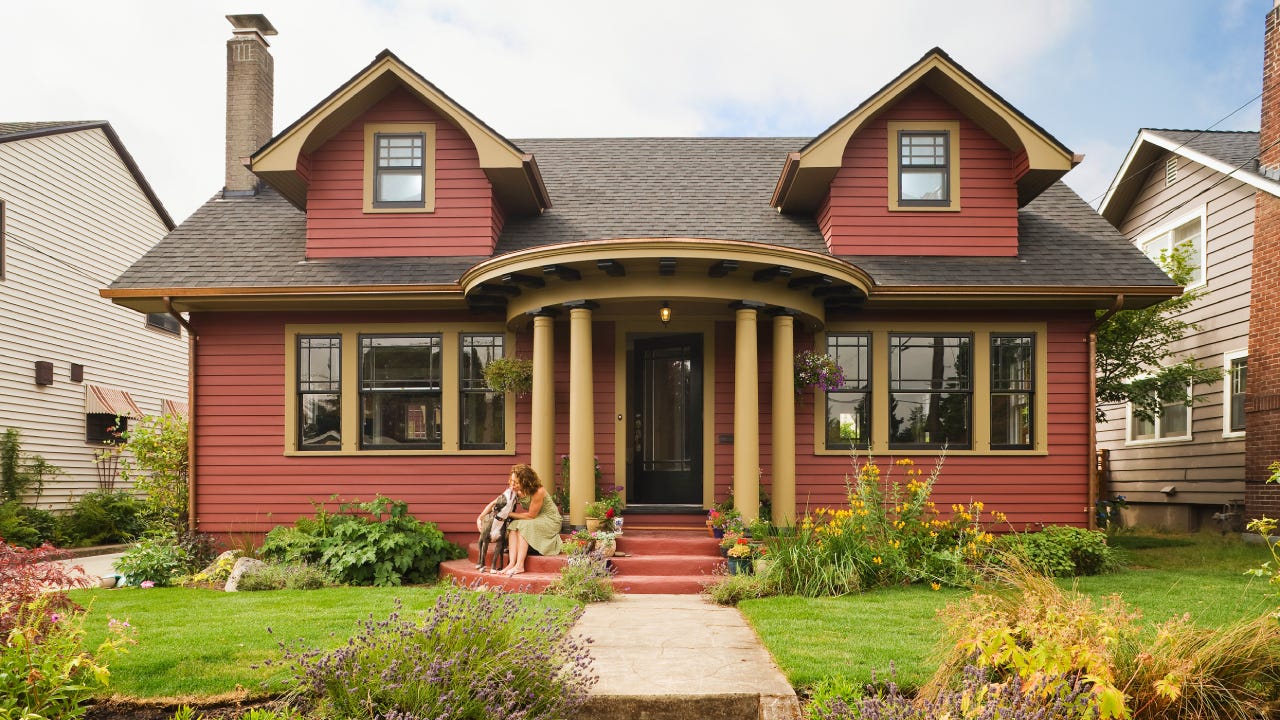If I make $130,000 a year, how much house can I afford?

An annual salary of $130,000 puts you far above the national median household income, which according to the most recent Census data is $74,580. However, high mortgage rates are putting a damper on affordability, and your homebuying mileage will vary greatly based on the cost of living and home-price range in your desired area. Read on to learn more about how much house you can afford with a $130K salary — without stretching yourself too thin.
The 28/36 rule
When you’re trying to figure out how much house you can afford, the 28/36 rule is a good place to start. This rule of thumb, used by many lenders, recommends that you spend no more than 28 percent of your income on housing costs, and no more than 36 percent on your total debt payments. That includes housing, as well as car payments, credit card bills, student loans and any other debts you may have.
Let’s see how this rule applies to a $130,000 salary:
- $130K annually breaks down to $10,833 per month
- 28 percent of $10,833 is $3,033, ideally the maximum you’d spend on housing costs per month
- Bankrate’s mortgage calculator shows that, with a 20 percent down payment on a 30-year loan at an interest rate of 7 percent, a monthly payment of $3,033 could land you a house costing up to $475,000. The monthly principal and interest payments in this scenario come to $2,528, which gives you about $500 of leeway to account for property taxes, homeowners insurance premiums and HOA fees, which all vary based on your location.
Don’t forget that, on top of these monthly payments, you’ll also need substantial savings: enough to cover the down payment and closing costs for your $475,000 house upfront, plus regular maintenance and upkeep once you own it. And make sure your other debt, plus these housing costs, don’t exceed that 36 percent mark.
How much house can you afford?
Applying the 28/36 rule, a $130,000 annual earner should keep housing costs below $3,033. However, there are many other factors besides just your income that shape how much house you can comfortably afford.
- Credit score: A strong credit score is important when you apply for a home loan. Lenders use credit scores to evaluate how risky of a borrower you are, so you’ll get a more competitive rate with a better score. A lower interest rate can lower your monthly payment significantly — for example, the difference between a $320,000 loan at 7 percent and the same loan at 6 percent is $209 a month in principal and interest.
- Debt-to-income ratio: You want your DTI, the percentage of your income that goes towards debt payments, to be as low as possible when you apply for a mortgage. Ideally, lenders want it to be under 36 percent (the second number in the 28/36 rule), though some lenders may accept slightly higher DTIs.
- Down payment amount: Conventional wisdom recommends a 20 percent down payment with a home purchase, and that is the threshold that will save you from having to pay PMI, or private mortgage insurance. For a $475,000 purchase, 20 percent comes to a hefty $95,000. However, you can take out a mortgage with much less down, especially if your credit score is high. Just keep in mind that doing so will result in a larger loan with more principal and interest to be paid back over time.
- Savings: Relatedly, how big is your savings account? Do you have enough to cover the down payment, plus the ongoing costs of homeownership and a rainy day fund in case of emergencies? Lenders will want to know.
- Housing market trends: Finally, your housing budget will go a lot further in some markets than others. Some areas might be prohibitively expensive for even your high $130,000 salary, and some will afford you a modest condo rather than a spacious single-family home.
Home financing options
There are many ways to finance a home purchase. But first, get preapproved for a mortgage. Doing so will give you a solid estimate of what your budget should be, and it’s also an important step towards showing sellers that you’re serious.
Down payment and credit score requirements vary, so when you’re ready to buy, it’s important to shop around and find the best mortgage loan for you. Common options include:
- Conventional: Qualified borrowers can secure this most popular home loan type with as little as 3 percent down and a minimum credit score of 620.
- FHA: Designed to be accessible, FHA loans can be had for as little as 3.5 percent down with a 580 credit score, if you qualify.
- VA: If you’re an active military service member, surviving spouse or veteran, you might be eligible for a VA loan.
- USDA: USDA loans are designed for low- and moderate-income borrowers in qualifying rural areas — with your high income, it’s unlikely that you’d be eligible.
First-time home buyer programs
If you’re feeling daunted by the thought of a large down payment, you may qualify for a financial assistance program designed to help, especially if you’re a first-time homebuyer. These programs typically provide grants and low-interest or forgivable loans, but your high income may disqualify you.
Get started
Ready to start your homebuying journey? Your first step should be to find an experienced local real estate agent who can guide you to a smooth transaction. Ask for recommendations from friends and family and consult online reviews, then interview at least three candidates before you make a decision. The right agent can help you buy the best house possible on your $130,000 salary.
Why we ask for feedback Your feedback helps us improve our content and services. It takes less than a minute to complete.
Your responses are anonymous and will only be used for improving our website.
You may also like

How to build a family financial plan





